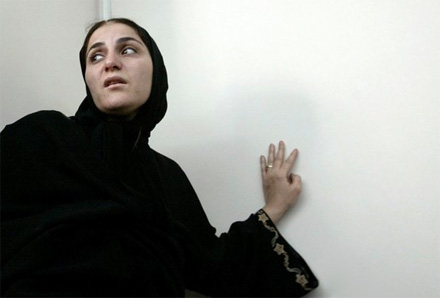
On 1 December 2010, a young woman in Tehran met her death by hanging.
Shahla Jahed, a fiery, outspoken woman in love, is only one example amongst many women whose lives have ended in futile pursuits in a nation where democracy is a foreign, unfamiliar, concept.
For years, men and women of insight have struggled for equality, for true liberty and for freedom from oppression and injustice. Throughout the last century, the world has frowned upon racial prejudice and all sorts of barbaric attitudes. We have celebrated an end to the era of slavery and have rejoiced by such ideologies that humanity can only fulfil its noble destiny by coming together in peace and harmony.
Yet, it seems that in a nation that has prided itself with one of the oldest and most glorious civilisations, women are still struggling.
Surely, enlightened souls would agree that the one thing that has been most instrumental for the collective prosperity of humankind has been the ever-growing awareness of the importance of pursuing equal rights for all the members of the human family regardless of social, ethnic, religious or racial background.
How then can the rights of half of the population of a nation be so brutally violated? And why is it that the voices raised in plight of women’s rights are not loud enough to shake the foundations of brutality?
Who was Shahla Jahed? Why did her life have to come to such an abrupt end in such a painful manner? What really was her crime in this scandalous story? And would a man accused of the same crime meet the same end in a nation like Iran?
Sadly in this nation, which has long lost its lustre and is deeply immersed in the dark clouds of religious ignorance, women are victim of inequality from the moment of birth and even in their own homes amongst their loved ones.
Boys are often given more advantages and treated differently; while women are brought up to be instruments whose main purpose is to please their man by standing behind his professional progress, keeping perfect house for him, and satisfying him in the bedroom.
Some dare not ever fall in love, for they know their fate is to serve a man who is selected for them. Some others fall in love but, burying it deep in their hearts, spend their lives next to another man. And some — like Shahla — submit to the yearning of their hearts and fall prey to the so-called-charms of lustful men.
One would look at Shahla and her bold, brave, manner of defending herself in public court, and would wonder sadly at how her passion was so overtly wasted on the lustful desires of a man.
What would Shahla be if not infatuated at age 13 with a grown man who enjoyed celebrity status? Where would she be now if her talents, passion and drive had been exerted towards attainments which would be possible for women in an atmosphere of true equality?
Shahla, by her own testimony, fell in love at age 13 with a football star; and, passionate as she was, she set out to pursue what she perceived as the love of her life. Outspoken she was in her love and unyielding in her efforts to be with the object of her desire. The football star — married though he was — fanned the flames of the young woman’s heart and led her on through a journey of no return.
Shahla’s world came crumbling down when the football star’s wife was murdered, and fingers were pointed at her for the crime; even though certain evidence indicated that the murder victim was raped prior to death and that the crime could not have been committed by a woman.
Shahla was sentenced to death by hanging, based on a confession she had given: a confession which was dramatised and filmed with Shahla herself playing the part of the perpetrator!
The severity of the ignorance is so sad that it makes one break into nervous laughter! What sort of child’s play would ever prompt a serious court into asking the suspect to star in the enactment of the murder, of which she is accused? And since when confessions of any sort in a court-system whose reputation precedes it for getting forced confessions is of any value?
Sadly, there seems not to be any audible answers to these and many more questions; for, if there were, Iran would not be suffering so terribly. One would also wonder as to why the football star was never thought to be a suspect, and why is it that his infidelity was not even frowned upon by the authorities.
Yes, this sad saga is considered to be a scandalous story of love and lust; but behind the layers, can one really not see the fiendish grimace of injustice, sneering at women — ever so victorious in defeating yet another woman?
Perhaps a deeper reflection is needed by just-minded people and stronger cries of help for an entire nation that is ruled by the hands of ignorance!
— Gloria Yazdani






